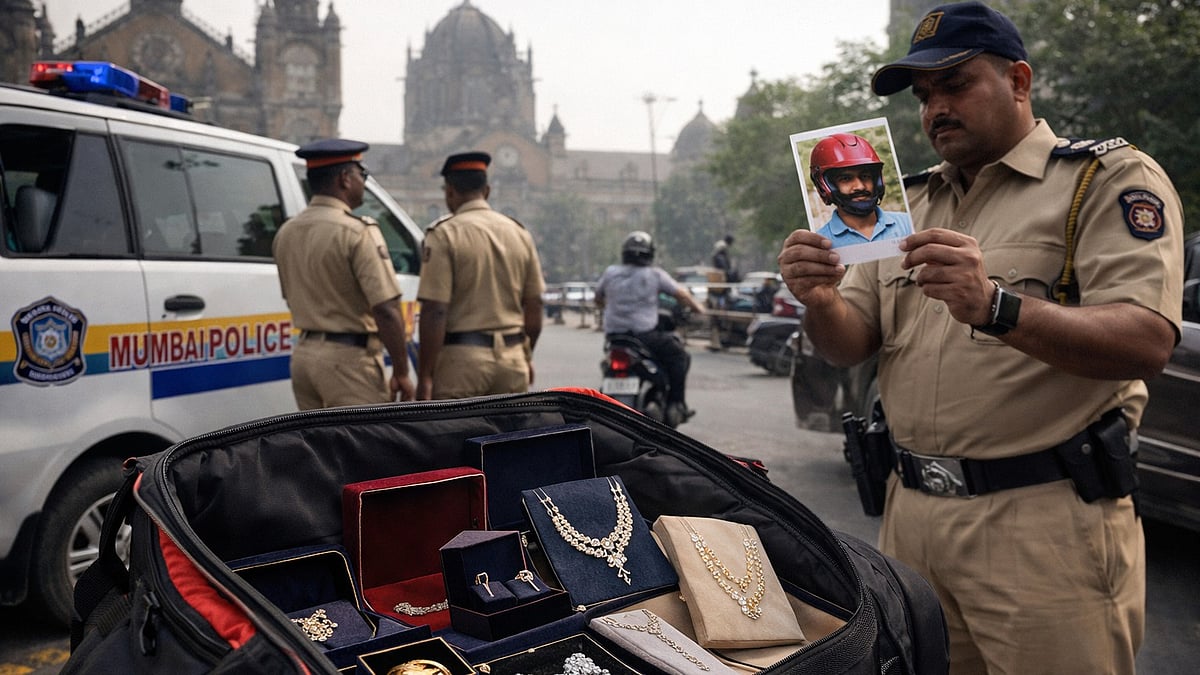Today is World Book and Copyright Day and also Shakespeare Day. Reminds me of the famous quote “What’s in a name? That which we call a rose, by any other name would smell just as sweet.”
The legendary playwright William Shakespeare penned these lines for his character Juliet in Romeo and Juliet, to announce to Rome that a name is nothing but a name and, hence, it is a convention with no meaning. But, it’s still called Shakespeare’s quote and there could have been a copyright issue if his contemporaries stole it as their own!
Whether it is Bharat or India, Bombay or Mumbai, does it matter? Guess it does...
The origin of a name is one of the most fascinating historical aspects of a civilisation. A name is an identity, a compass, a contextual milieu of a human being. The name spells the history of the caste, creed, and community.
The struggle for a unique identity is evident from early on. Nomad communities, long before becoming settled civilisation, would mark their group members with lines and circles tattoos.
The need to belong to a group is inherent in the human DNA. For example, our Indian names are long and almost descriptive of the gender, geographical area one belongs to or one’s occupation.
The practice of using surnames formally started during the British rule of India. Earlier, the practice was to use either father’s name or village name to create an identity.
In many parts of India, the name of the village is part of the surname. For instance, in Sikhs, the surname is usually the village name; in certain Marathi sub-castes they add a ‘kar’ at the end; in Marwaris, the surname is usually a derivative of the village name (for example, people from Kajar become Kajaria and so on). In many places in Andhra Pradesh, Karnataka, Tamil Ndau, and Kerala, the village name is used as an initial.
Then, a lot of families use their caste name as a surname. This is especially popular in West Bengal, Bihar, Uttar Pradesh, Madhya Pradesh, Haryana, and a few other places.
In North India, names consist of three parts: first name, middle name, and father’s surname. Married women in this region take on their husbands’ last names, while their maiden last names become their middle names. On the other hand, men retain their names as they are.
In East and West India, an individual’s name still consists of three parts. They are given a personal name, use their father’s given name, and have a family name.
In the South India region, a person has four names. Each of these names represents something related to their origin. Their first name is derived from their village, their second name is their father’s name, their third name reflects their given name, and their fourth name refers to their caste.
In Europe too, the village name becomes the surname in many societies. The Scots add ‘Mac’ to the village name; Italians ‘Da’ (Leonardo Da Vinci); Germans have ‘Von’; Dutch have ‘Van’; French have ‘D’ or ‘De’.
Many Parsis adopted their profession as names — Contractor, Engineer, Doctor, Nutboltwala. A name with the suffix ‘walla’ loosely means ‘the trade one’s ancestors practised’. For example, ‘chaiwalla’ roughly means ‘someone who makes chai (tea).
Hence, a name does carry a function if not necessarily a meaning, and it’s specifically important for creators, artists and designers.
For instance, in the world of art, whether it is paintings and sculpture, replicating the artwork without credit or plagiarism in literature is rampant. How precarious is the line between ‘inspired by’ and ‘plagiarism’?
Most of the creative work is about connecting two seemingly unconnected ideas. There is hardly any pure invention, it’s all a matter of juxtaposition of two existing concepts, thoughts or ideas. Changing a line or a word can be an escape from giving royalty to the original artist. Name is an identity, and one cannot underestimate its value as we live in this playground called the world.
No one claim to be an onomastician, but Shakespeare’s comment started this journey of thoughts in this direction as I remember the song by Gulzar:
‘Naam ghoom jayega,
Chehra ye badal jayega,
Meri awaaz he pehchaan hai
Gar yaad rahe…’
Or Eric Clapton’s feelings resonated in a similar tone…
‘Would you know my name?
If I saw you in heaven
Would it be the same?
If I saw you in heaven…’
I guess until we are in this world. I, me, mine... Belonging, attachment, communion... All are at play. But once this outer ego is shed, we are beings that are thoughts and feelings. In short, nothing but energy…
(Sonal Motla is an art curator and Director at Rachna Sansad, working towards issues on art education, craft and design as a visiting faculty with a few educational institutions like NIFT Mumbai, among others. Send your feedback to: sonal25fpj@gmail.com)








